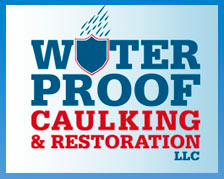Concrete waterproofing is important for ensuring the foundation of your home or commercial property remains in good condition and that foundational issues do not develop. Without waterproofing concrete, the risk of water damage inside the building or water reaching the underlying soil below the foundation of your property is much higher.
Fortunately, concrete waterproofing is a way to reduce the risk of concerns developing with your property’s foundation. If you are considering waterproofing concrete yourself, it is important to understand how to waterproof concrete before starting.
Ideally, it is best to hire a professional to ensure the waterproofing job is done correctly and in a safe manner. This also ensures the results last for a long time. With that said, the following is a complete overview of how to waterproof concrete, including insights into what considerations you should make before you begin.
Is Concrete Already Waterproof?
Concrete is not already waterproof. A concrete foundation that does not have any cracks or gaps will resist running water well, but water vapor can still move through the concrete. Over enough time, this can lead to a buildup of water inside of the soil underneath the foundation of a commercial property or home.
Of course, this is assuming there are no cracks. Many homes and commercial properties have cracks in their concrete foundations. Waterproofing concrete prevents water from moving through the concrete and causing concerns. This can prevent issues such as water damage in rooms below ground inside of your home and mold infestation.
What to Consider When Waterproofing Concrete
There are certain factors that one should consider before waterproofing concrete. It is important to take time planning to ensure the job is done in the safest and most effective way possible. Otherwise, there is a risk of injury while waterproofing the concrete or results that do not reliably keep water out of the concrete foundation.
Elevation Groundwater
A good first step to take during concrete waterproofing is determining the layout line. Ideally, the goal is to apply the waterproofing products as close to the finish grade as possible. This is typically around the six-inch mark but not any lower. The person doing the waterproofing should also account for all windows, doors, or other surfaces that do not need to be waterproofed.
In general, any foundation wall that is indoors on one side and outdoors on the other requires waterproof caulking, especially towards the bottom where groundwater can accumulate. This prevents sitting or running groundwater from entering your property through small cracks and gaps at the base level.
Weather Conditions
You should also consider the current weather conditions before you begin applying waterproofing products. If you are using a water-based solvent, then the weather should be above 40 degrees Fahrenheit. You can check the manufacturer’s temperature limitations for more information about what conditions are ideal for the solvent that you are using.
The waterproofer may need to wait until there are dry weather conditions before waterproofing concrete. This ensures more reliable results and allows the waterproofer to work in safer and more comfortable conditions.
Staying Safe When Waterproofing Concrete
One of the most important considerations a waterproofer should make is ensuring they have all of the necessary safety precautions in place. There are certain common elements that are potentially dangerous while waterproofing:
- Risk of fire
- Eye injuries
- Vapor concerns
- Skin concerns
- Toxic chemicals
Many waterproofing products are flammable, so it is important not to use anything that may cause a fire around the waterproofing products. It is also important to protect yourself from skin and eye injuries by wearing protective eyewear and clothing. Also, understand the chemicals that you are using and ensure you protect yourself if they are toxic.
How Long Does it Take?
Every concrete waterproofing project is unique. However, it generally does not take more than a few hours to apply the waterproofing products. With that said, there is a curing time for concrete and it cannot be waterproofed until after the time. Be sure to check the recommended curing time for the concrete before applying waterproofing. Most of the time, the curing time is at least seven days, although it can take as many as 28 days in other instances.
Reach Out to the Waterproofing Experts
Waterproofing concrete is not an easy process and requires time, knowledge, and expertise to carry out safely and successfully. For many, it is best to hire a professional waterproofing company, especially if you own or manage a commercial business with a larger building structure. At Waterproof Caulking & Restoration, we offer professional concrete waterproofing services, so feel free to reach out today to find out how we can help you with your project.
